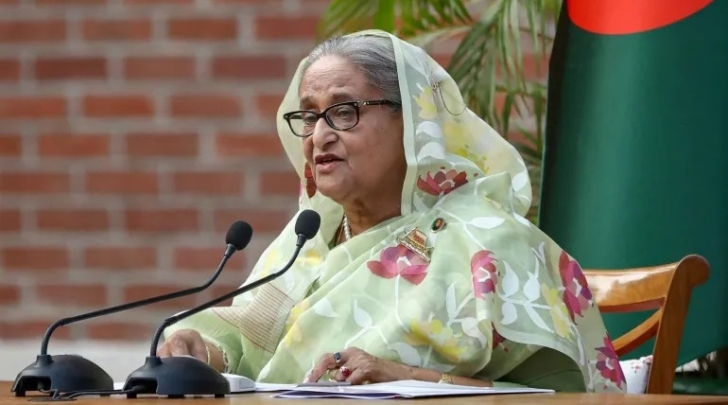
Former Bangladesh PM Sheikh Hasina sentenced to death over brutal protests crackdown
A Bangladesh court on Monday, November 17, sentenced ousted prime minister Sheikh Hasina to death for crimes against humanity, with cheers breaking out in the packed court as the judge read out the verdict.
Hasina, 78, defied court orders that she return from India to attend her trial about whether she ordered a deadly crackdown against a student-led uprising that ousted her. The highly anticipated ruling, which was broadcast live on national television, comes ahead of the first polls since her overthrow in August 2024.
"All the (...) elements constituting crimes against humanity have been fulfilled," judge Golam Mortuza Mozumder read to the packed court in Dhaka. Hasina was "found guilty on three counts," including incitement, order to kill and inaction to prevent the atrocities, Mozumder said. "We have decided to inflict her with only one sentence. That is, sentence of death."
Bangladesh carries out the death sentence by hanging. Former interior minister Asaduzzaman Khan Kamal, also a fugitive, was also sentenced to death, after being found guilty on four counts of crimes against humanity. Former police chief Chowdhury Abdullah Al-Mamun, who was in court and had pleaded guilty, was sentenced to five years' imprisonment.
In hiding in India
Hasina, who was assigned a state-appointed lawyer for the trial, called the verdict "biased and politically motivated" in a statement issued from hiding in India. "Its guilty verdict against me was a foregone conclusion," Hasina said.
Bangladesh has been in political turmoil since the end of Hasina's autocratic rule, and violence has marred campaigning for elections expected in February 2026. The United Nations says up to 1,400 people were killed in crackdowns as Hasina tried to cling to power, deaths that were central to her trial. Chief prosecutor Tajul Islam, speaking ahead of the verdict, said he had hoped that the people's "thirst for justice will be fulfilled, and that this verdict will mark an end to crimes against humanity."
Prosecutors filed five charges, including failure to prevent murder, amounting to crimes against humanity under Bangladeshi law. The trial heard months of testimony in absentia, detailing how Hasina had ordered mass killings.
Deepening crisis
Security forces surrounded the court for the verdict, with armored vehicles manning checkpoints and thousands of police officers posted across the capital. Crude bombs have been set off across Dhaka this month, mainly petrol bombs hurled at everything from buildings linked to interim leader Muhammad Yunus's government to buses and Christian sites.
Bangladesh's foreign ministry summoned India's envoy to Dhaka this month, demanding that New Delhi block the "notorious fugitive" Hasina from talking to journalists and "granting her a platform to spew hatred."
But Hasina remains defiant. She said in October she "mourned all the lives lost during the terrible days" when students were gunned down in the streets. Her comments enraged many who said she had made a ruthless bid to maintain power at all costs.
